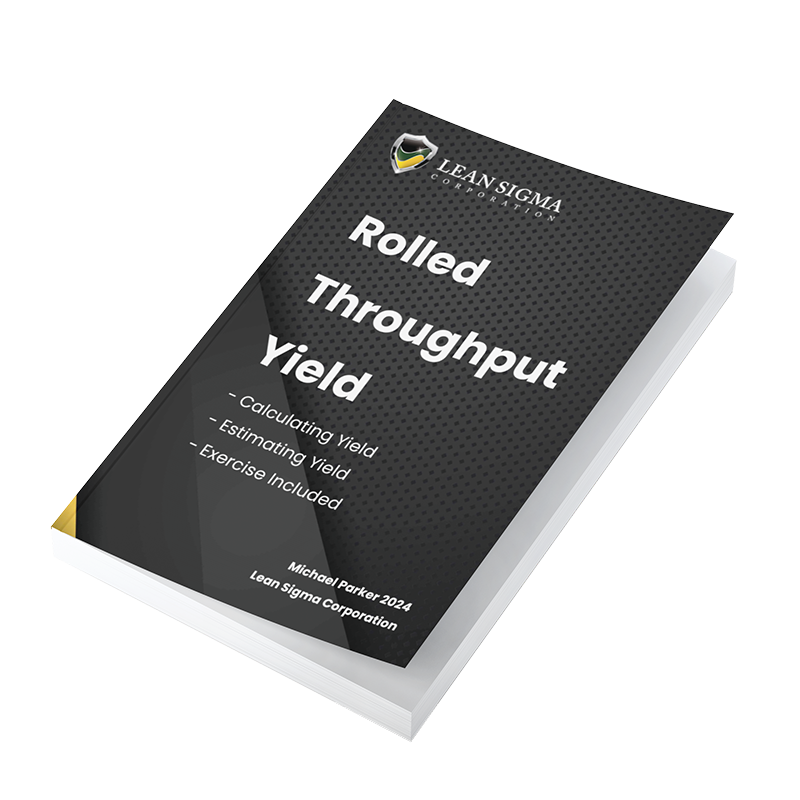Rolled Throughput Yield
Rolled Throughput Yield (RTY) is a process performance measure that provides insight into the cumulative effects of an entire process. RTY measures the yield for several process steps and provides the probability that a unit will come through that process defect-free.
RTY allows us to expose the "hidden factory" by providing visibility into the yield of each process step. This helps us identify the poorest performing process steps and gives us clues into where to look to find the most impactful process improvement opportunities.
Calculating Rolled Throughput Yield (RTY):
RTY is found by multiplying the Yields of each process step. Let's take the 5-step process below and calculate its Rolled Throughput Yield using the abovementioned multiplication method.

Abbreviations
- Defects = D
- Unit = U
- Defects per Unit = DPU
- Yield = Y
- e = 2.71828 (mathematical constant)
Yield Calculation

The Yield of a process step is the success rate of that step or the probability that the process step produces no defects. To calculate Yield, we need to know DPU, and then we can apply it to the Yield equation above.

For example, suppose a process step has a DPU of 0.109 or 10.9%, derived by dividing the number of defects (65) by units (598). Then, we can apply the Yield equation: Y = 2.718 ^ -0.109 = 0.8967 rounded, Y = 90%
The table above uses the process yield data we used in the earlier RTY calculation. This table allows us to see the DPU and Yield of each step and the RTY for the whole process.
Estimating Yield
It is also possible to “estimate” Yield by taking the inverse of DPU or simply subtracting DPU from 1. Referring to the table above, let's run a quick yield estimation.
Yield Estimation = 1-DPU
- Yield Estimate for Process step 1 = 1 - 0.10870 = 0.89
- Yield Estimate for process step 2 = 1 - 0.09006 = 0.91
- Yield Estimate for process step 3 = 1 - 0.01031 = 0.99
- Yield Estimate for process step 4 = 1 – 0.02083 = 0.98
- Yield Estimate for process step 5 = 1 – 0.02972 = 0.97
RTY using the Yield Estimation Method = 0.89*0.91*0.99*0.98*0.97 = 0.76 or 76% PRETTY DARN CLOSE! And you don't even need the yield equation.


